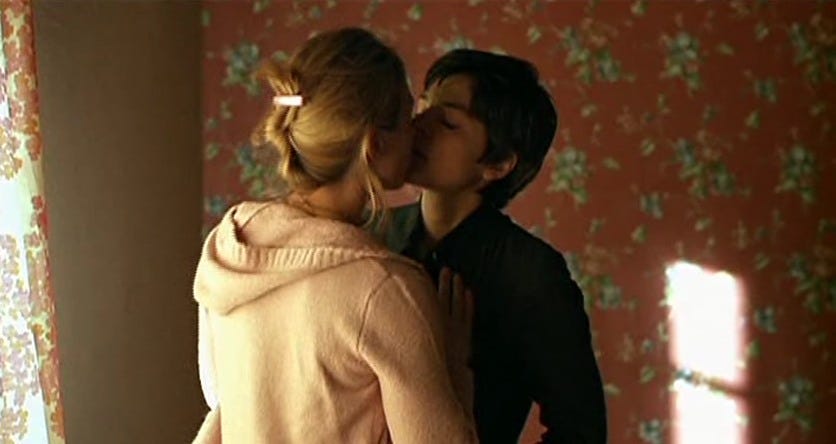fremde haut (unveiled)
Film, 2005, 3.5 stars
Directed: Angelina Maccarone
Written: Angelina Maccarone and Judith Kaufmann
Unveiled brought to mind two of the most powerful films I've ever seen— Boys Don't Cry and Yentl. In all three of these films a woman dressed as a man is displaced from her home and persecuted for following her heart, both by the culture she is escaping, and eventually by the culture she escapes to. Fremde Haut is political, provocative and ultimately tragic.
Fremde Haut, as the press release informs us, literally means "In Orbit", which is the UN term for refugees who travel the world looking for any country to accept them. To return to their country of origin would mean death, so they search for a place of acceptance and hope in a world that pays lip service to human rights, but generally turns its back on the reality of the refugee problem.
Fariba Tabrizi (Jasmin Tabatabai) is an Iranian woman who has fled because she was caught having an affair with another woman and refused to recant her lesbianism. She travels to Germany, hoping for a new chance in a new country. When asked by the German authorities why she is seeking asylum, she is ashamed to admit the real reason, so she lies and claims she is a political refugee. The Germans catch her in the lie, and by the time she admits the truth they have decided not to trust her and to deport her back to Iran.
In the processing centre she befriends a student named Siamak. Siamak's brother was taken instead of him, and he fears the shame almost as much as he fears being deported back to face a similar fate. He downs a bottle of liquid Drano and begs Fariba to write to his parents from Germany to tell them he is fine. Fariba seizes her opportunity; she cuts off her hair, puts on Siamak's glasses and presents herself to the refugee board as Siamak to secure a temporary visa.
Once out in society, Fariba/Siamak gets an illegal job at a Saurkraut factory to earn money to pay for a fake passport, which she sees as her ticket to freedom. There she meets Anne, a lonely single mother, and they become close. In the process, Siamak manages to piss off every man she meets, especially her co-worker Uwe who has loved Anne for a long time.
As with Lana and Brandon in Boys Don't Cry, one of the more fascinating things about Unveiled is figuring out the exact moment Anne realises Siamak is a woman. In an attempt to humiliate her, Uwe pays for Siamak to have an hour with a prostitute, who figures out Siamak's real gender almost immediately. I think the penny drops for Anne while they are in the back seat of Uwe's car and Anne is playing lovingly with Siamak's hands, comparing their softness with her own. Her eyes seem to widen for a second, as if everything suddenly becomes clear to her.
Yet, regardless of what Anne thinks she knows, Siamak must still admit everything to the woman she loves before their love can be consummated. Everything becomes urgent when the German authorities revoke Siamak's temporary visa because his student group is no longer being persecuted in Iran. Facing losing the woman she loves and being chased from her home, Siamak becomes desperate and determined to fight.
It was during the final third that I truly fell in love with this film. With her back against the wall, Fariba's true character begins to shine through. Instead of a haunted, shy man we see the woman Fariba could be if she were free to love as she chooses. Anne was intrigued by Siamak, but after she sees her lover for who she really is she falls deeply in love with Fariba. Their shared intimacy becomes intense, their sex wonderfully passionate.
Not to sound like a party-pooper, but there are some hiccups with the film. The boorish, misanthropic, anti-islamic behaviour of Uwe and the other male factory workers is pushed to a disturbing degree. Sure, we are supposed to see what happens when men feel their territory is threatened, but there are other ways to show that than simply having the male characters to be all-wanker, all the time.
When the inevitable happens and the men discover Fariba's true identity, the reaction seems not that much more terrible than the way she has been treated all along. The horror is undermined right at a critical point when the tragedy should be unfolding. Besides, one-dimensional bad guys always fail to get their point across. It was difficult for me to hate them or pity them as characters. I just wanted not to see them.



